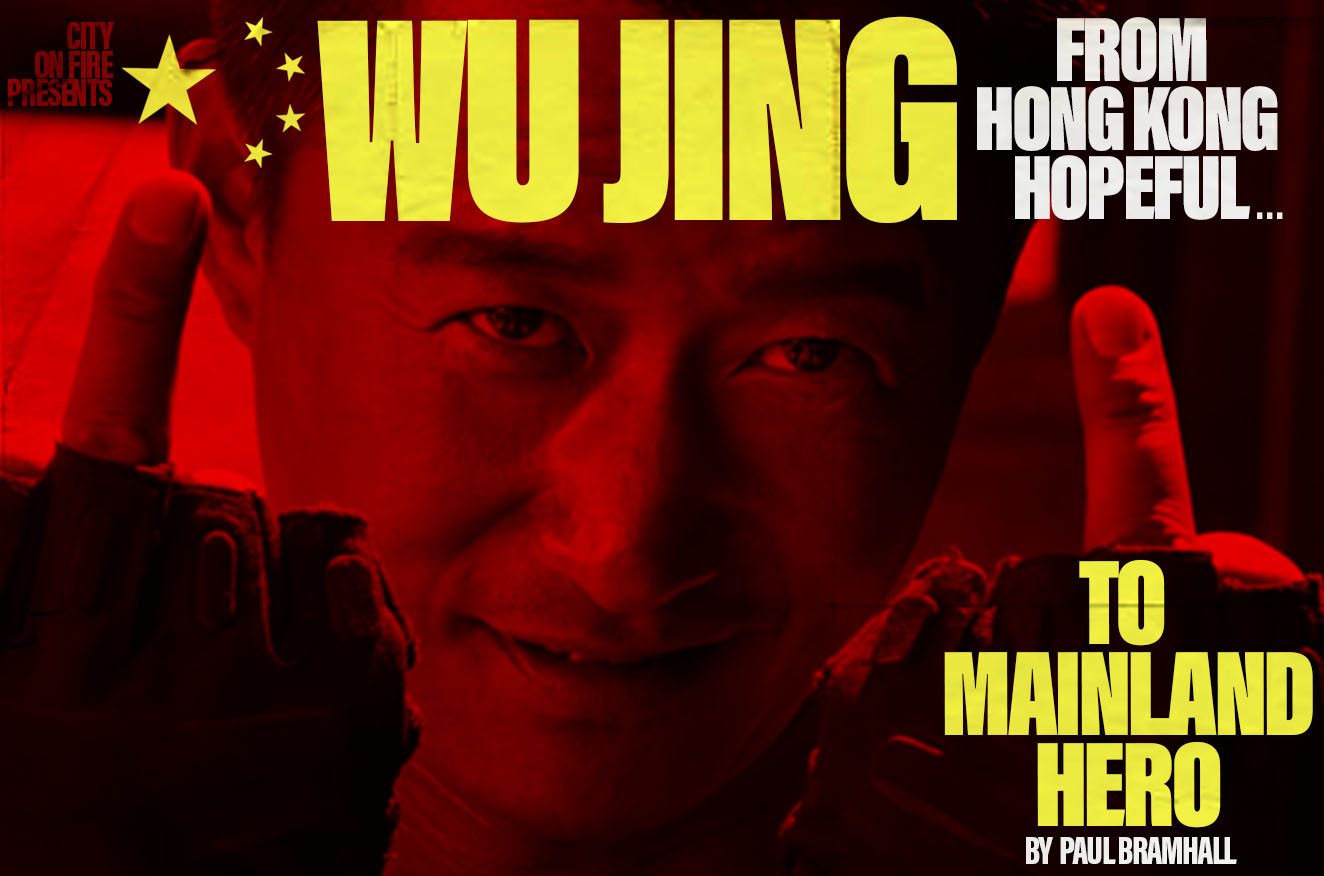
It’s been over 25 years since Wu Jing debuted on Hong Kong cinema screens in 1996’s Tai Chi Boxer, a production which saw him billed as the next Jet Li in part thanks to their shared history of being on the Beijing Wushu Team. While it’s debatable exactly what criteria would need to be ticked off in order to fulfil the prediction of being the next Jet Li, what can’t be argued is that over the course of his career, Jing would come to re-invent himself almost every 10 years on the dot. A mix of his own ambitions equally combined with the climate of the times, the reasons behind each reinvention ranged from the commercial to the political, making him one of the most intriguing members of what can be considered the last batch of legitimate martial arts stars.
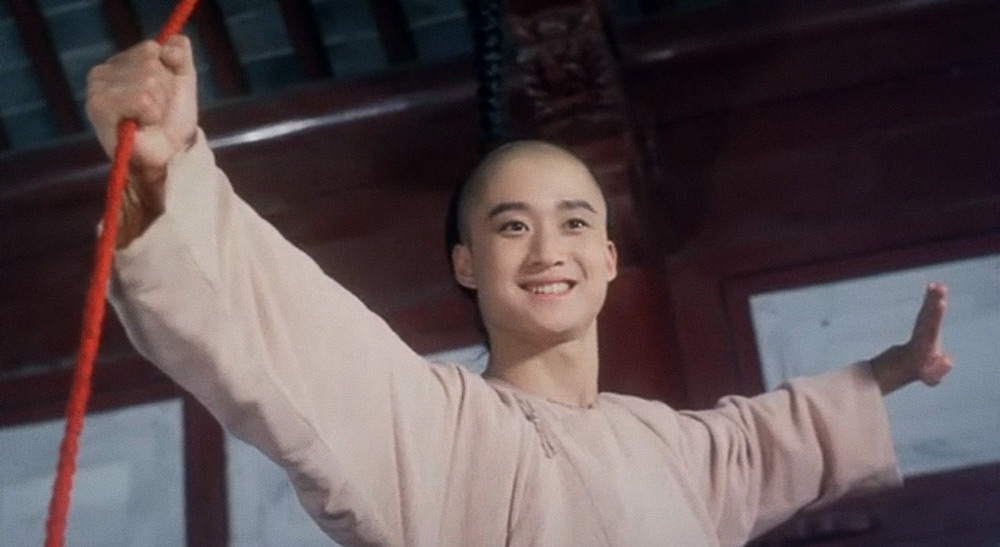
Wu Jing in Yuen Woo-ping’s 1996 martial arts film Tai Chi Boxer (aka Tai Chi II).
As of the time of writing Jing is one of the most bankable stars in China, headlining the top 2 highest grossing Chinese productions of all time – 2021’s The Battle at Lake Changjin in first place, closely followed by his self-directed 2017 sequel Wolf Warrior 2 in second. Having conquered China, this summer he’ll be making an impact in Hollywood by co-starring alongside Jason Statham in Meg 2: The Trench, teasing the prospect of some kung-fu versus megalodon action.
For someone who for many years was considered as the guy who just couldn’t catch the break he deserved, as he approaches his 50th year things can certainly be said to have worked out in the end. The most interesting aspect to Wu Jing’s ascension to box office stardom, is that it’s taken a very different path from what many of the fans who were introduced to him in the 1990’s or 2000’s would have expected. In this feature, we’ll take a look at what I like to call the 3 seasons of Wu Jing. Why only 3? With Jing’s stardom showing no signs of abating, chances are the 4th season is still to come.
Winter: Beginnings – 1996 to 2004
At a time when Hong Kong was just a year away from being handed back to China, most of the territories biggest stars had jumped ship for Hollywood, and the traditional kung-fu movie had long fallen out of fashion, director Yuen Woo-Ping decided to debut his latest discovery Wu Jing in 1996’s Tai Chi Boxer (which notably in some territories was released as Tai Chi II, billing it as a sequel to the Jet Li starring Tai Chi Master from 1993). Casting an unfamiliar face to be the star in a genre that was no longer flavor of the month may have been risky, but what can’t be denied is that as a leading man the 21-year-old Jing delivered a likable charm, topped off by an impressive screen fighting pedigree that showed he was the real deal. Busting out the moves against gweilo new blood like Darren Shahlavi and the ever-dependable Billy Chow, under the choreography of Woo-Ping everyone delivered top shelf action performances.
Regardless of how solid a kung-fu movie Tai Chi Boxer was though, it was never destined to set the box office alight, so it was no surprise when it didn’t. Despite this, the same way that Woo-Ping was responsible for launching the career of Donnie Yen in the previous decade (and remained working with him up until just a couple of years prior to Tai Chi Boxer with 1994’s Wing Chun), for a moment it looked like the legendary choreographer was going to make Wu Jing his new muse into the 2000’s. A couple of years after Tai Chi Boxer, with the kung-fu movie no longer a viable proposition, the pair would reunite for the 28-episode Mainland TV martial arts drama The Tai Chi Master (which was released as an edited down version in the U.S. on DVD by Tai Seng).
Barring the distinct low quality made for TV look that Mainland series from this era came with, Woo-Ping once more offered up a solid showcase for Jing’s skills, even if the proposition of both of their talents being relegated to working in the Mainland TV arena certainly wasn’t an appealing one. As it happened, the proposition would prove to be an unfounded one, but unfortunately only for one of them – and it wasn’t Wu Jing. A relatively unknown Hollywood directing duo by the name of the (formerly known as) Wachowski Brothers called upon Woo-Ping to travel to the U.S. and not only choreograph a little heard of movie called The Matrix they were working on, but also put the cast through an intensive screen fighting training program prior to rolling the camera. It was a unique opportunity, and one that Woo-Ping understandably said yes to, and as a result Jing was left blowing in the wind.
Without the opportunity to develop the same lasting relationship with the legendary choreographer that Donnie Yen was gifted with, and with seemingly no avenues back to Hong Kong, Jing would go on to carve out a career for himself in Mainland TV martial arts series. Throughout the 2000’s he’d play the starring role or one of the main characters in 8 such series (and supporting roles in several more), with names like Shaolin King of Martial Arts (2002), 36th Chamber of Southern Shaolin (2004), and Wu Dang (2005). It was only when Woo-Ping returned to Hong Kong after The Matrix finished production that Jing would once more return to HK cinema screens, however it was no longer in a leading role, instead playing a supporting character in Tsui Hark’s 2001 sequel The Legend of Zu opposite fellow Beijinger Zhang Ziyi.
Jing’s role in The Legend of Zu offered up one of the rare instances for some grounded action in the special effects heavy spectacle, as Woo-Ping choreographed a sword fight between Jing and Ziyi (who Woo-Ping also reunited with after working together on the previous years Crouching Tiger, Hidden Dragon). While an auteur like Tsui Hark had created some of the defining works of fellow martial artists like Jet Li (Once Upon a Time in China I – III) and Vincent Zhao (The Blade, Green Snake) in the previous decade, it appeared like Jing’s appearance was likely called in thanks to Woo-Ping’s involvement rather than Hark finding a new martial arts muse. In fact it’d take 20 years for the pair to collaborate again with 2021’s The Battle at Lake Changjin, and next time it’d be Wu Jing who’d be the megastar, while Hark found himself co-directing a Mainland targeted war movie alongside Chen Kaige and Dante Lam.
In the early 2000’s it may have looked like Jing was set to be a Mainland TV series mainstay with only supporting roles on offer in Hong Kong productions, but in 2003 fortune would shine on him once more. Not only were the legendary Shaw Brothers studio looking to resume film production for the first time since 1997’s Hero, it was also announced that Lau Kar-Leung was returning to both direct and appear in front of the camera for the first time in almost a decade. The project became Drunken Monkey, and was intended to be a throwback to the traditional kung-fu movies of the 70’s, all they needed was a star who could pull off the moves without the need for camera trickery or CGI – enter Wu Jing. Taking the starring role and backed up by Shaw Brothers legends like Gordon Liu and Chen Kuan-Chun, Jing essentially stepped into the role that Hsiao Ho played in Mad Monkey Kung Fu 24 years earlier, making his casting a no-brainer.
I’m sure the distributors and marketing team did their best to glaze over the fact that, while Kar-Leung hadn’t been active in the film industry for almost a decade, the last time he was resulted in 1994’s lamentable Drunken Master III. Sadly, Drunken Monkey turned out to be much closer to Kar-Leung’s last outing than it did any of his 70’s classics. Jing puts in a commendable performance, however Kar-Leung’s rust in the director’s chair is apparent, stuffing the runtime with grating comedy and a generic plot that struggles to maintain the audience’s attention. The subsequent box office failure of Drunken Monkey scared the Shaw Brothers off from movie production almost as quickly as they’d returned, and now 7 years since Jing’s debut in Tai Chi Boxer, it seemed to mark the final nail in the coffin for those hoping that he’d finally catch the break his talents deserved.
Spring: Renaissance – 2005 to 2014
It’s often said that if you want a different outcome, sometimes all you need to do is look at the problem from a different perspective. After 7 years of playing the good guy, it would be 2005 that gave audiences a new perspective on Wu Jing – one that saw him as a villain. Director Wilson Yip’s Sha Po Lang (or Kill Zone as it was tragically re-titled to in the U.S.) proved to be a significant Hong Kong movie in more ways than one. After loitering around in supporting roles the previous year, SPL would mark the first starring role in a HK production for Donnie Yen since his trio of self-directed features made across 1997 and 1998, and his return saw him as a man on a mission. With 2003’s Thai action breakout Ong Bak leaving the once renowned HK action scene in the dust, Yen wanted to make a movie that would put it back on the map, and SPL was intended to be it.
Despite the 3 stars in Chinese astrology that the title Sha Po Lang refers to being represented by Yen, Sammo Hung, and Simon Yam, it was Jing’s turn as Sammo Hung’s righthand man that led to the productions most memorable scene – an alleyway fight between Jing and Yen that precedes the finale. Consisting of a dagger brandishing Jing facing off against an extendable police baton wielding Yen, the fight is rightly regarded as an all-time classic. Fast, brutal, and containing moments of spontaneous choreography only possible through having 2 martial artists performing at the top of their game, the image of the white suited Jing and his shock of blonde dyed hair was a revelation. The fight itself was parodied 15 years later in Donnie Yen’s Enter the Fat Dragon, with Philip Ng stepping into Jing’s role, and is guaranteed to come up in any discussion on greatest fight scenes to grace the screen.
Jing’s role proved to the breakthrough he’d been looking for, and over the course of the next 9 years he’d turn up in a total of 16 production between 2006 – 2014 (not including his TV work). Property developer turned self-proclaimed director Dennis Law was the first to pick up on Jing’s potential, and immediately thrust him back into starring role status with 2006’s Fatal Contact, notably also marking his first pairing with frequent fight choreographer (and former Jackie Chan Stunt Team member) Nicky Li. While Fatal Contact was a low budget affair, it was refreshing to see Jing as the lead in a contemporary set production, and the choreography successfully re-framed his wushu flourishes into Li’s distinctive wire-assisted modern day kickboxing style.
Sha Po Lang didn’t only revive the career of Jing though, with Sammo Hung also enjoying a renaissance, after spending the first half of the 2000’s featuring in one box office bomb after another. Filmmakers took note of their partnership in SPL, and aimed to recreate the dynamic with varying results. First they’d reunite as a pair of shaolin monks entrusted with looking after a magical talisman in 2007’s Twins Mission, which as the title alludes to, is actually a starring vehicle for popular Cantopop duo Twins (Charlene Choi and Gillian Chung – who aren’t really identical twins – but are playing identical twins in the movie. No, none of it makes sense). A rather embarrassing affair for all involved, far more effective was Jing’s reunion with director Dennis Law and choreographer Nicky Li for 2008’s Fatal Move.
Re-working what was originally intended to be a prequel to Sha Po Lang, Law still managed to convince Sammo Hung and Simon Yam to return as different characters, and crafts a story in which the echoes of SPL can clearly be felt. In Fatal Move Hung returns as a triad boss, only here he’s looking to retire, with gang members Jing (his blonde hair here replaced with a blue one-eye comb over) and Yam as potential successors. Like in Fatal Move Li’s choreography gives Jing plenty of opportunities to let loose, usually with a sword in hand, with the only downside being Law’s decision to splatter every action scene in buckets full of unconvincing CGI blood.
The main selling point of Fatal Move though is that, unlike in Sha Po Lang and Twins Mission, here Jing and Hung would face off against each other in the finale. The reason for doing so is typical of Law’s deficiencies as a storyteller, creating a scenario in which the gang find themselves surrounded by cops, so rather than be captured by the law, the pair decide to fight each other to the death to see who’ll come out the victor. Featuring a steel pole brandishing Hung versus a sword wielding Jing, it’s a satisfying duel, despite not reaching the heights of either Jing or Hung’s fights against Donnie Yen 3 years earlier.
Indeed it was 2008 that proved to be the most significant year in this era of Jing’s filmography, and it would also be his busiest, featuring in 4 productions in total. In addition to Fatal Move he’d also clock in a supporting role in the Hong Kong comedy L for Love L for Lies, however it would be the next couple of productions that showed his ambitious side. Pairing up with Nicky Li, he’d make his directorial debut with Legendary Assassin, in which he also took on the title role. Playing an assassin that gets stuck on one of Hong Kong’s outer islands due to an approaching typhoon after completing a hit, its clear that directing isn’t a talent that comes naturally to Jing or Li, however they still manage to craft a competent enough action flick.
The story revolves around Jing becoming involved with a local police officer played by Celina Jade, who ends up in peril once the gangsters move in to take revenge for their boss being killed. Interestingly the finale seems to take a cue from The Matrix Revolutions, with Jing forced to take on dozens of identically dressed attackers during a rain-soaked night setting, choosing to rely heavily on his kicking skills more than wushu, which gives it a distinctly different feel than his usual approach to action. Legendary Assassin definitely didn’t set the box office alight, and was far from being a strong debut from a directorial perspective, factors which would result in Jing sticking to being in front of the camera for the rest of the decade.
It was during the promotional period for Legendary Assassin that Jing got himself embroiled in some controversy with the Hong Kong martial arts community, specifically wing chun practitioners. When asked about the dispute that was ongoing at the time as to whose production should have the right to be called Ip Man – Wilson Yip or Wong Kar Wai – both of whom had movies about the wing chun masters life that (at the time – in reality Kar Wai’s movie would take another 5 years to be released) were due out in 2008, Jing responded “I first learned this name from the press about the conflict in the filming of the life of Ip Man. I thought, ‘Who is this man that there is such a fuss about?’” His apparent ignorance of Ip Man caused offence to producer and wing chun master Sin Kwok Lam, who challenged Jing to fight against either Dennis To (who would ironically go on to play Ip Man himself 2 years later) or Vivi Lee, a wing chun exponent.
Ultimately nothing came of the challenge, and Jing’s offending of certain parts of the Hong Kong community was perhaps a timely one. With Mainland China going through an economic boom the cinematic landscape was beginning to change in the late 00’s, with hundreds of multiplexes being built thanks to a burgeoning middle class who loved to go the cinema. It wasn’t long before Hollywood got smart to the fact that a movies box office potential could be increased dramatically by appealing to a Chinese audience, and it was from this line of thinking that the China-Hollywood co-production was born. These late 2000’s to mid-2010’s productions, made before relations between the 2 countries deteriorated, would typically look like big budget Hollywood productions on the surface, but came with significant Chinese investment towards the budget.
The trade-off meant that Chinese stars usually showed up in in supporting roles, and typically parts of the movie would find an excuse to take place in China, all of which meant box office appeal for both sides. Such was the case for the third entry in The Mummy franchise, titled The Mummy: Tomb of the Dragon Emperor. While Brendan Fraser and co. spend most of their time dealing with the emperor of the title, played by another wushu luminary in the form of Jet Li, here Jing gets a brief role as an assassin, offering up his first appearance in a big budget Hollywood franchise. As a related sidenote, in 2013 Marvel’s Iron Man 3 would also be a co-production between Hollywood and China, and Jing shot an action scene which was intended to be shown in the China distributed version of the production, but ultimately would become missing in action from all known prints. Call it Wu Jing’s very own saw in the head scene!
Prior to 2008, in the same year as Twins Mission Jing would return on villain duty in Benny Chan’s action flick Invisible Target. A big budget starring vehicle for the trio of Nicholas Tse, Shawn Yu, and Jaycee Chan, it gave Jing his most mainstream exposure yet in terms of prominent roles. Once more paired with choreographer Nicky Li, the action wisely pays respect to his martial arts talents by needing all 3 of the protagonist’s team up in order to take him out during the satisfyingly action-packed finale. Invisible Target would see Jing go on to appear in several of Benny Chan’s productions, usually in memorable supporting roles, including 2010’s City Under Siege and 2011’s Shaolin.
For City Under Siege in particular, while arguably the most insufferable title in all of Benny Chan’s filmography, the pairing of Jing and Zhang Jing-chu as mutant hunting Mainland cops provides the sole reason to check it out. Their scenes offer a glimmer of what the production should have been, agents equipped with superior kung-fu skills ready to unleash them onto any unsuspecting mutant criminal at a moment’s notice, but as it is they play 2nd fiddle to a horrendously handled romance between Aaron Kwok and Shu Qi. On the other hand, while Shaolin offered up not 1 but 2 of likely every up-and-coming martial arts stars dreams – being choreographed by Corey Yuen, and getting to feature alongside Jackie Chan – Jing’s role feels mostly perfunctory in much the same way it was 10 years prior in Tsui Hark’s The Legend of Zu.
The rise of the Mainland film industry would offer up the opportunity for Jing to start shifting away from Hong Kong, and 3 years after his (unintentionally) controversial comments about Ip Man, in 2010 he released a lengthy statement on the now defunct wu-jing.org site (the full statement can still be read here). In it he expressed his woes about working in HK by saying he was “hiding behind one after another new set of clothes playing a nice Hong Kong lad over a long time, I feel that I have lost my bearing.” Revealing that he’d been offered the lead role of a soldier in a military themed Chinese TV drama, he went on to explain his conflicts around the “distinction between movie stars and TV stars”, concluding that it’s been his “wish to be soldier since young, and now I have a chance to act as a solider, what’s there to hesitate? Why bother if it’s a movie or TV series, as long as you get a chance to covey the artistic image you wish…”
The lead role being referred to was in 2012’s Special Arms, but prior to taking it on Jing was already starting to pop up in an increasing number of Mainland productions, with supporting roles in the likes of 2010’s Wind Blast (a rare Mainland attempt at a HK style action flick) and the comedy Love Tactics. The trend would continue by appearing opposite Jet Li again in 2013’s Badges of Fury (a co-production with Hong Kong) and 2014’s The Breakup Guru. With the benefit of hindsight, Jing’s presence in Hong Kong productions around the same time was also noticeably decreasing, with throwaway roles in the likes of 2009’s Metallic Attraction: Kungfu Cyborg, 2010’s Just Another Pandora’s Box and 2011’s Magic to Win being indicative of a performer who’d lost the passion he so obviously had during that golden 2005 – 2008 period.
By 2014 Wu Jing’s course seemed to be set – finding contentment in headlining Chinese TV action dramas, marrying his partner Xie Nan (who he featured alongside in The Breakup Guru), and continuing to appear in supporting roles in local Mainland productions. Almost 20 years since his debut he’d built up a respectable body of work, even if many would say he never really got the big break he deserved like his contemporaries Jet Li and Donnie Yen. However with his roles in the likes of Sha Po Lang and Fatal Contact, Jing was at least going to be remembered as a solid screen fighter who always delivered, and the alley way fight in the former will always be mentioned as one of the greatest fight scenes to be put on film. Wu Jing may have finished this era by turning his back on the Hong Kong celebrity lifestyle, but he left behind a solid body of work that we can always enjoy, and nothing can change that.
Summer: Ascension – 2015 to Present
Purely from the perspective of being a kung-fu movie star, reaching the peak of your career once you’re over 40 is practically unheard of, however Wu Jing had other ideas. Initially this period of Jing’s career looked like he may not be turning his back on the Hong Kong film industry after all, as 10 years since his iconic role in Sha Po Lang, he was offered the lead role in the thematic sequel, SPL 2: A Time for Consequences. Paired with Tony Jaa in a Thailand set tale which sees them taking on a corrupt prison warden played by Max Zhang, the sequel gave Jing his first starring role in a Hong Kong production since his self-directed debut Legendary Assassin 7 years earlier. It was worth the wait, as director Soi Cheang brought out a performance in Jing that delivered both on the acting and the action front, leading many to believe that his role could be the breakout fans had been waiting for.
However SPL 2 would turn out to be more of a swansong to his Hong Kong era than a comeback, and while Jing would go on to make a supporting appearance by reuniting with director Benny Chan in the following years Call of Heroes (as well as featuring alongside his wife again in the co-production A Chinese Odyssey: Part 3), it seemed like his time in HK really was over. For his fans it was a double dose of bad news, as not only was he turning his back on what many action cinema fans considered to be the spiritual home of the genre, but he also shared a photo at the time from a hospital bed revealing he’d had surgery on both of his legs.
Despite how things may have looked, in the background it turned out a number of stars were aligning. In 2014 President Xi made his famous (or infamous – depending on your perspective) speech, in which he urged the film industry to make “patriotism the main theme of literary and artistic creation”, ushering in the era of the ‘main melody’ genre. ‘Main melody’ is an expression used for productions made for the purpose of extolling the virtues of China as a nation, the communist party that rules over it, and of course its military. After Jing’s woes of Hong Kong celebrity culture and never being able to catch the break he deserved, the speech seemed to be a rallying call, and he decided to once more step into the director’s chair (this time on his home soil) to make what would become 2015’s Wolf Warrior.
While there could well be other productions that were released prior to Wolf Warrior, from a popularity perspective, it’s widely considered to be the first ‘main melody’ movie that fully encapsulated President Xi’s wishes, essentially being a 90-minute promotion for the awesomeness of the Chinese military. Jing takes the lead role, playing a soldier who’s promoted to the Wolf Division, and ultimately has to take on a group of foreign mercenaries planning to make a virus that’ll specifically kill Chinese people. The movie itself is a fairly lacklustre affair, even squandering the casting of Scott Adkins as the villain (not helped by the fact Adkins was carrying an injury at the time), however Wolf Warrior became a production which transcended such details, becoming more about what it represents than whether it’s actually good or not.
The overtly jingoistic tone and its complete lack of subtlety may have been jarring for many non-Chinese audiences (this is a movie that closes with an almost 4th wall breaking line of “Those who threaten China’s resolve will have no place to hide!”), but in China Wolf Warrior became almost a byword for Chinese pride. Soon the confrontational style of Chinese politics began to be referred to as “wolf warrior diplomacy”, with politicians themselves taking pride in being labelled with the moniker, perhaps no more so than Lu Shaye, who became known as the wolf warrior diplomat for his controversial pro-China views. For Jing, after struggling in Hong Kong for so many years, he practically became the face of Chinese pride overnight.
A sequel was immediately green lit, and with almost triple the budget of the original arrived in 2017, somewhat ironically bringing onboard Hollywood talent like Frank Grillo and Sam Hargrave to assist in delivering on the action front. Deliver it did, with Wolf Warrior 2 being a wildly entertaining ride set in Africa (the first of many Chinese movies that would refer to the continent as if it’s a country). As much as it elevated the action, so also the jingoistic tones were also cranked up a notch, starting with the movies tagline which literally read “Whoever attacks China will be killed no matter how far the target is.” At least they’re clear. The sequel ends on a bizarre final scene which simply shows the image of a Chinese passport, along with accompanying text which reads “Citizens of the PRC: When you encounter danger in a foreign land, do not give up! Please remember, at your back stands a strong motherland.”
Such scenes may sound like the kind of thing you’d see in a North Korean propaganda movie, and really it’s not far from the truth. In March 2018 China’s National Radio and Television Administration (NRTA) division, whose role is to approve any content which gets shown on Chinese screens, was transferred to sit under the CCP’s Central Propaganda Department. While the move was seen as largely symbolic of what had already been expected from China’s film industry since President Xi’s 2014 speech, the transfer solidified the expectation that any movie production’s primary purpose should be to glorify China, and Jing’s Wolf Warrior movies had set the template.
What’s most surprising though is that not many propaganda movies are expected to break all box office records, but in China that’s exactly what Wolf Warrior 2 did, becoming only the 2nd production in history to reach $800 million in a single territory (the 1st was Star Wars: The Force Awakens in the U.S.). It would go on to knock Stephen Chow’s The Mermaid off the top spot, the final nail in the coffin for any last traces of Hong Kong talent having influence on the Mainland box office, and a deluge of movies praising China’s military might followed in the succeeding years. From big budget spectacles like Dante Lam’s Operation Mekong and Operation Red Sea, to web movies like the Vincent Zhao starring Counterattack and the Wolves Action series, if you wanted your action movie to have a chance of success, a military flick became the go-to genre.
Jing himself had said in his post from 2010 “Farewell, pale face scholar, I want to see, if I could summon a primitive impulsive deep within my heart, could I be a soldier?” His wishes had come true, and after 20 years of attempting to be the next kung-fu superstar, instead Jing finally found the recognition he was seeking through becoming the most recognisable face of China’s cinematic propaganda. While immediately after Wolf Warrior 2 he’d clock in a supporting turn in the fantasy comedy The Faces of my Gene (and if we have to mention it, also Alibaba Group founder Jack Ma’s bizarre vanity project, the short film On That Night…While We Dream), it quickly became apparent that Jing’s role was one of being willingly typecast as the go-to leading man for big budget jingoistic blockbusters.
Across 2019 and 2020 alone Jing would play an Earth saving astronaut in the sci-fi blockbuster Wandering Earth, heroic mountaineer Fang Wuzhou in The Climbers, clock in a supporting role as a soldier in the Korean War set Sacrifice, and lend his name by cameoing in the saccharine My People, My Homeland. While all of these productions were successful on Chinese soil, and for titles like Wandering Earth even gained popularity internationally thanks to a release on Netflix, it was in 2021 that China pulled out all the stops for the mega budget The Battle at Lake Changjin. Like in The Sacrifice the Korean War was once again the setting, this time recounting a pivotal battle in 1950 in which the Chinese forces pushed the US marines back over the 38th parallel. Doesn’t a movie set in the Korean War at least need some Koreans in it, be they actors or at least characters? Apparently not when you’re China.
Commissioned by the Central Propaganda Department as part of the CCP’s 100th anniversary celebrations, the government threw a mind-boggling budget of $200 million to bring the story to the screen, hiring fifth generation filmmaker Chen Kaige, action maestro Dante Lam, and Hong Kong auteur Tsui Hark to direct. Usually a production helmed by any one of the trio was considered a cinematic event, so to have all 3 collaborating on the same movie was an exciting proposition. The fact that it had to be a propaganda war flick, one created to celebrate the communist parties 100th anniversary, understandably resulted in plenty of mixed feelings from the directors fanbases. Of course, there was only one choice for the lead role – Wu Jing. Expectedly, The Battle at Lake Changjin broke all box office records in China, surpassing Jing’s own Wolf Warrior 2, and was swiftly followed by a filmed back-to-back sequel in 2022.
25 years after making his debut in Tai Chi Boxer, Jing found himself as the star of China’s 2 highest grossing movies of all time, meaning it’s perfectly possible that audiences just discovering him will be completely unaware that he was once one of the most promising talents in Hong Kong’s kung-fu genre. The success of The Battle at Lake Changjin once more reaffirmed Jing’s status as being China’s premier star, and in 2023 he’d step up to again headline the sequel to Wandering Earth, which is notable because I’m sure not even Jing himself ever thought he’d take top billing over his HK legend co-star Andy Lau. Jing’s role in Wandering Earth 2 means that he’s in half of the top 10 highest grossing Chinese movies of all time (the other 2 being the original and The Battle at Lake Changjin II), his appearance practically being a guarantee of success.
Almost becoming an omnipresent fixture in big budget Chinese cinema, in 2022 he’d also cameo in the Chinese citizen evacuation thriller Home Coming (hopefully the characters in this one took note of Wolf Warrior 2’s passport featuring last scene), and take on a supporting role playing a coach in the 2023 sporting drama Ping Pong: The Triumph. Surprisingly, the Jackie Chan starring drama Ride On offered up a rare non-jingoistic supporting turn for Jing, perhaps as a nod of acknowledgement to his kung-fu days. What’s next for Jing in the ever-shifting world of Chinese cinema remains to be seen. In 2017 the closing moments of Wolf Warrior 2 assured us that Wolf Warrior 3 would be coming soon, however 6 years later there’s zero trace of it.
One theory can be derived from looking at the approach we’ve seen in the likes of The Climbers, Wandering Earth, and The Battle at Lake Changjin, wherein it seems like the one person as the hero approach has fallen out of favor with the CCP. Now it’s all about ensemble pieces, where victory is only guaranteed if all Chinese people unite together behind the common good, meaning the place for the solo Wolf Warrior in the current cinematic environment is no longer a viable one when emphasising the united Chinese spirit. Whatever the case may be, Jing has proven to be flexible with the times, perhaps none more so than this summer when he’ll appear alongside Jason Statham in Meg 2: The Trench, which will pit China and America’s finest against the jaws of the megalodon (or several of them if the trailer is to be believed!). As Jing’s first primarily English language role, I’m sure it’ll only result in his popularity continuing to rise.

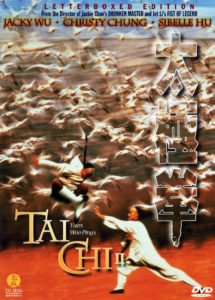
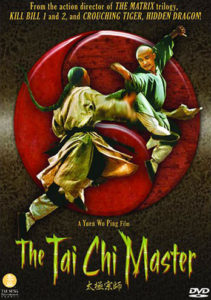
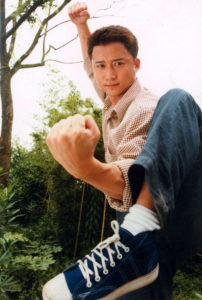
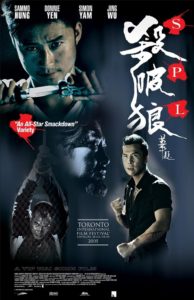
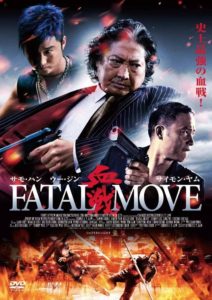
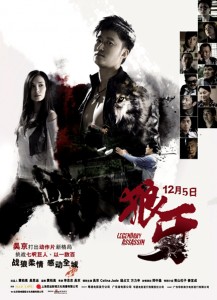
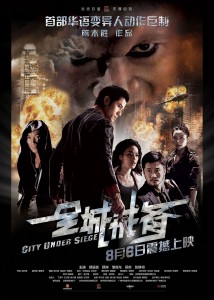
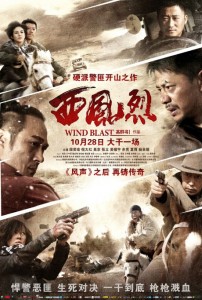
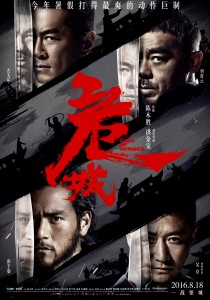
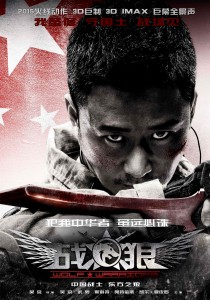
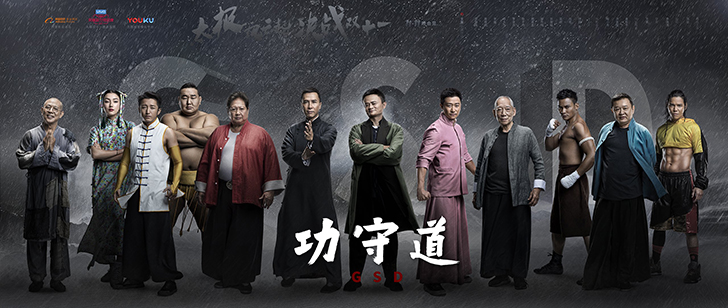
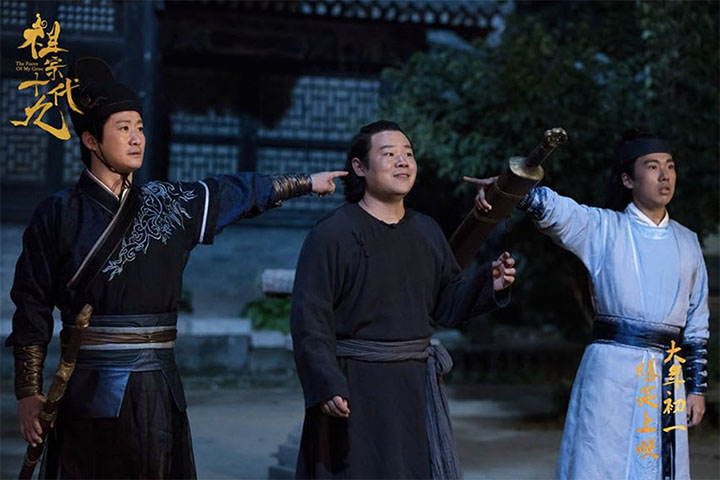
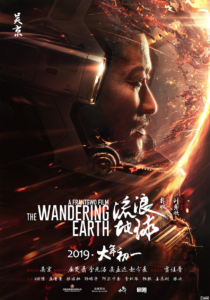



Great job and a very interesting write-up, Paul. Can’t say I’m a huge fan of Wu Jing’s output. He just doesn’t have that many films that ever appealed to me. I find his best work to be Tai Chi Boxer and Fatal Contact. His arrival on the scene seems to be during a cinematic shift in China. I was severely disappointed that he and Adkins didn’t have a proper throwdown in Wolf Warrior. That lasts like…what? 30 seconds? Maybe a minute? Shouldn’t have even bothered with it.
It’s great to have an article dedicated to this guy. People ignorantly say he didn’t make it because he’s not as well known as Jackie Chan or Jet Li, but just like anyone else, his career has been a rollercoaster of ups and downs, and through it all, he’s been a success regardless of how many westerners are familiar with him.
It was scary seeing that hospital picture of him years ago. It was being said that we was lucky to be able to walk after recovery, but that he could never do action films again. When Wolf Warrior 2 showed up out of the blue, it was shocking to see Wu Jing doing what he does best.
Oh Badges of Fury! It’s bad enough that the title sounds like something Seagal would do, but to have Jet Li vs Wu Jing be extremely short was one of the million things wrong with that cyst-tastic movie!
I always get nostalgic for the summer of 2002 when I re-visit HKL’s promo for TAI CHI BOXER – https://www.youtube.com/watch?v=DujPWqAO2wc
He certainly paid his dues same with Donnie Yen.
I really enjoyed THE MEG 2, which is weird as it commits a lot of the flaws that really aggravated me in the Jurassic WORLD movied – smug git of a hero, kids and cute pets in the way, a clear pecking order of who gets killed based on profession…
I’d be curious to see what China got, as Wu Jing is mostly just comic relief here.
My wife couldn’t stand it!